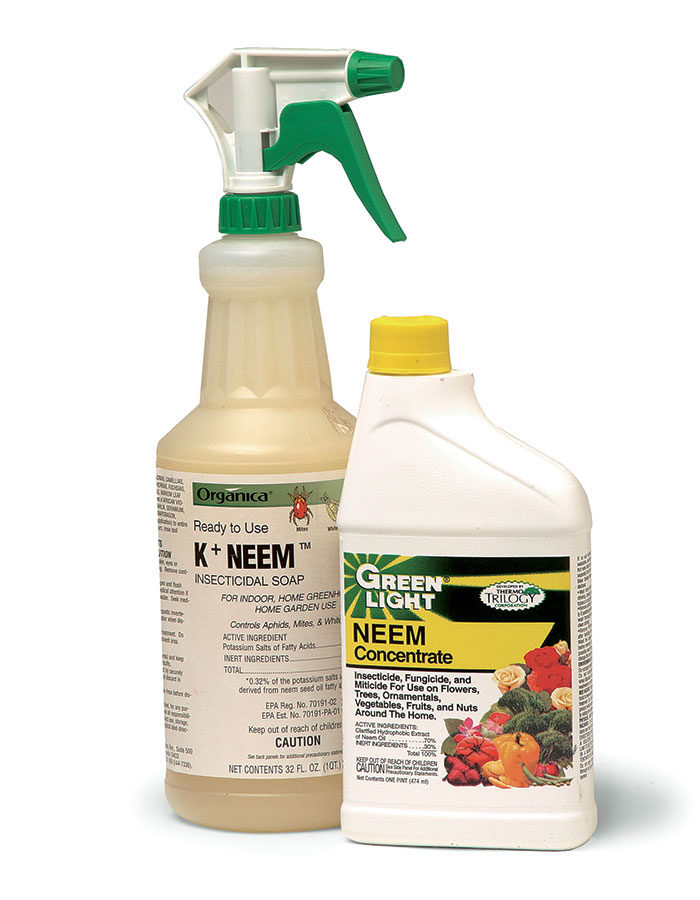
These days, savvy gardeners are reaching for a gentle but effective product to deal with many pest and disease problems: neem. Extracts from the neem tree (Azadirachta indica), which is native to India, have been used for centuries for everything from cleaning teeth to killing aphids. The leaves are used in analgesic teas and skin-soothing tinctures, and powder made from the leaves has long been used in folk remedies for cuts and abrasions, because it is an effective antibacterial agent. The bark is incorporated into body care products, the twigs are used like dental floss, and various neem extracts are often included in toothpastes because they help fight cavity-causing bacteria. Neem seed oil has antibacterial properties, and crushed seed is considered a valuable soil amendment.
Gardeners can also use neem oil to control or prevent many common plant pests and diseases (see the list below). It biodegrades quickly and, in small doses, is nontoxic to mammals, so it’s a good choice for using around the house. Neem product manufacturers list dozens of insects that can be effectively controlled with neem. It is effective against some of the more common caterpillar pests, and Japanese beetles, June beetles, and scarab beetles will not feed on neem-treated plants. Neem will also control the larvae of a number of lawn pests usually lumped together as “white grubs.” Sprays will also help to control disfiguring foliar diseases like mildews and black spot.
Control these pests with neem
Neem can be used to combat a number of pests, including the common ones in the list below.
|
|
|
|
The active ingredient in neem, azadirachtin, consists of compounds called liminoids, which act somewhat like steroids. When insects eat neem-coated foliage, the liminoids disrupt normal hormone production and processing, causing a loss of appetite in some insects and interfering with normal reproduction, maturation, and molting patterns in others.
Applied as a spray, neem will smother certain pests on contact and will also prevent eggs from hatching. Neem oil is available both in concentrate (to be mixed with water) and in ready-to-use handheld spray bottles. It is safe to use on both ornamental and edible crops and can be sprayed on herbs and vegetables up to the day of harvest. Applying neem oil to a drought-stressed plant can burn the foliage, so water plants thoroughly before using it.



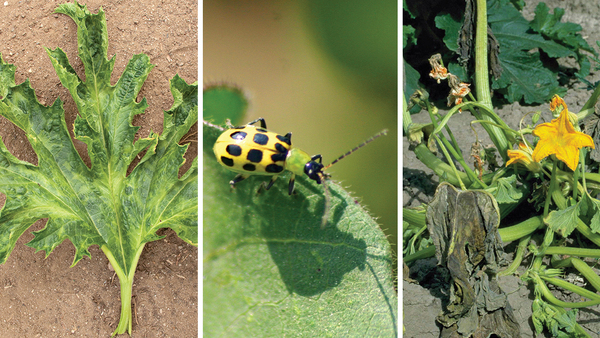


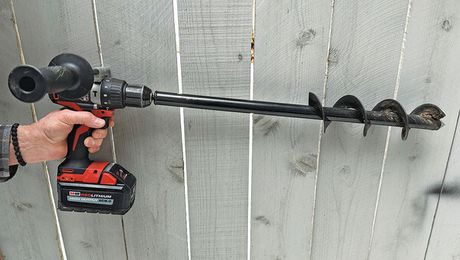
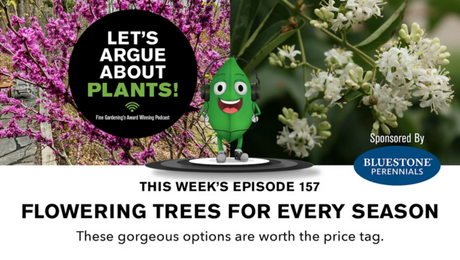

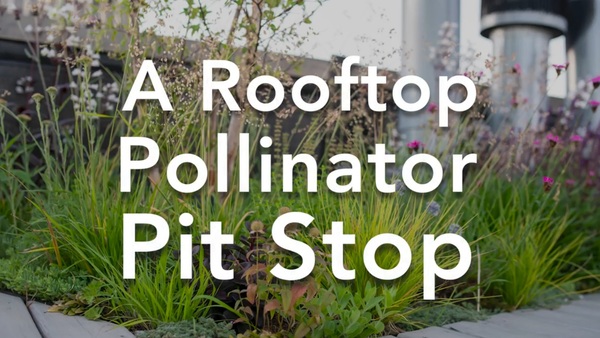

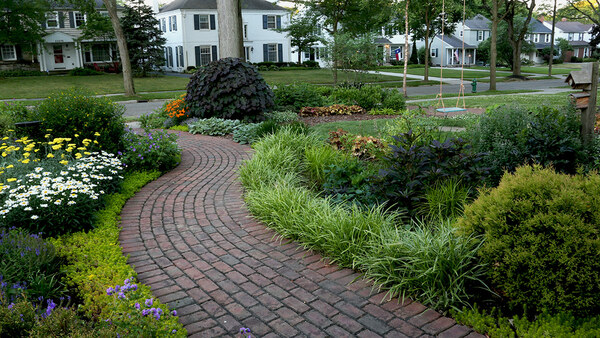
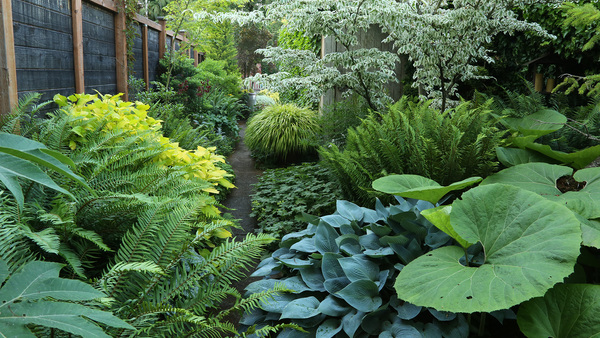
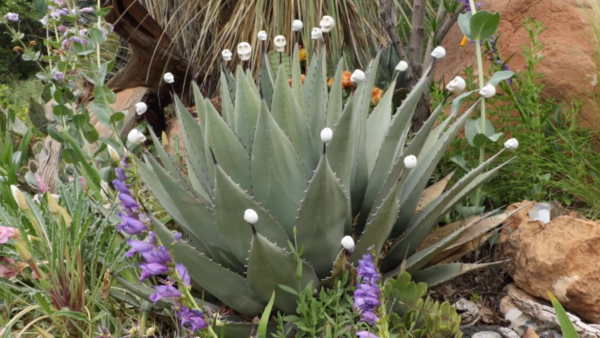


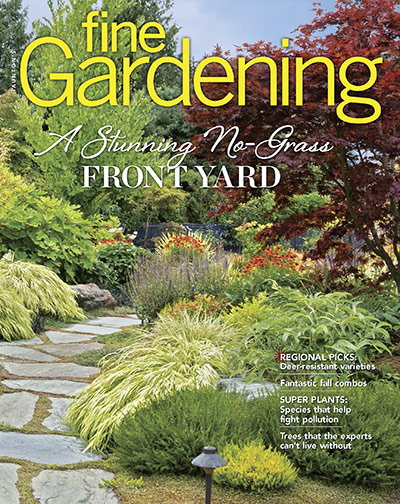
Comments
Log in or create an account to post a comment.
Sign up Log in